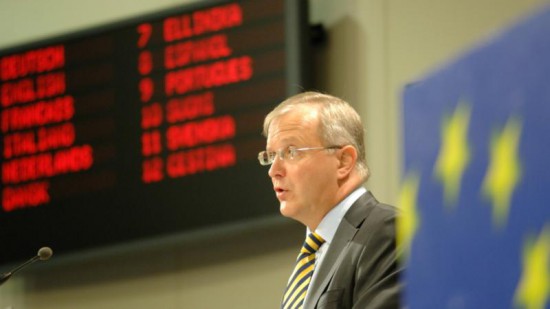Romania and Bulgaria were not ready for accession, EU auditors confess
The European Court of Auditors (ECA) lifted the veil on a little-known page of European history yesterday (12 September) when it revealed the Court had initially opposed the accession of Romania and Bulgaria to the EU.
Bulgaria and Romania joined the EU in January 2007 despite the auditors’ opinion that they were not ready for accession, ECA said in a report published on Monday.
The auditors said they wanted to avoid similar situations happening in future EU enlargements.
ECA member Istvan Szabolcs Fazakas, who presented to the press a ‘meta-audit‘ on the way EU pre-accession assistance was spent in the candidate countries of the Western Balkans, recalled his personal experience as Chairman of the European Parliament Committee on Budgetary Control (Cocobu) in 2006, when Bulgaria and Romania were close to accession.
‘My hands are tied’
As Fazakas said, the ECA report for Bulgaria and Romania from July 2006 explicitly said that these countries needed more time to prepare for accession, so that European money could be absorbed in a correct way.
In his capacity of Cocobu chair, he consulted the then Commissioner for Enlargement Olli Rehn, who told him “sorry, it’s too late, my hands are tied, the political decision for Bulgaria and Romania to join by 1 January [2007] has been taken by the member states, upon recommendation by the European Commission”.
“Thank you, you may be right”, Rehn reportedly told Fazakas, adding that his only task was to make sure that accession takes place on 1 January 2007 as planned.
A similar time pressure occurred in the case of Croatia’s 2013 accession, Fazakas said. But nowadays there was no such time pressure, as a result of Commission’s President Jean-Claude Juncker decision that no new EU enlargement would take place until the end of his term in 2020, the ECA member added.
Consequently, in future, ECA country reports would be tabled two years before the Commission’s target date for accession, Fazekas said, which would avoid the constraints of the past.
He explained that it was ECA’s initiative to come up with a ‘meta-audit’ for the Western Balkans, which is supplementing the country reports. At first, the Commission was surprised by this initiative, but ECA explained that it wanted to give the bigger picture how €5.1 billion in pre-accession support from the European Commission between 2007 and 2014 were spent, and what lessons should be learned for the future.
The audit on EU aid for the Western Balkans countries hoping to join the bloc has been hampered by “considerable shortcomings” in national governments, ECA says.
Funding could be reduced or halted to encourage authorities in Albania, Bosnia, Kosovo, Macedonia, Montenegro and Serbia to comply, the European Court of Auditors suggest.
The report cites “weak administrative capacity” and a “lack of political will to reform institutions” in some countries.
The audit found comparatively little funding across the Western Balkans in areas of judicial reform, media freedom and measures to tackle corruption and organised crime.
It said the impact of an EU-funded anti-corruption project in Albania was affected by a lack of funds and staff and was not independent from the country’s government.
“If the anti-corruption people in a certain country are not independent then it doesn’t serve any purpose, it’s just window-dressing,” the audit team said.
Anti-corruption organisation Transparency International ranks Albania and Kosovo at 88th and 103rd place respectively in its annual global corruption perception index.
Fazakas told AFP that more funding goes to infrastructure projects than so-called rule-of-law projects.
“It is nicer to have a bridge or a road or a kindergarten built, and then to put a European flag on it and say ‘This is sponsored by Europe’. Their main objectives are to get visible outcomes.”
He warned that political dialogue with the EU should focus on judiciary reform so that Western Balkan countries are not still affected by corruption and organised crime by the time of their accession.
Membership negotiations have already started with Serbia and Montenegro, but are yet to get underway for Albania and Macedonia. Bosnia and Kosovo have been promised the prospect of membership when they are ready.
13 September, 2016

